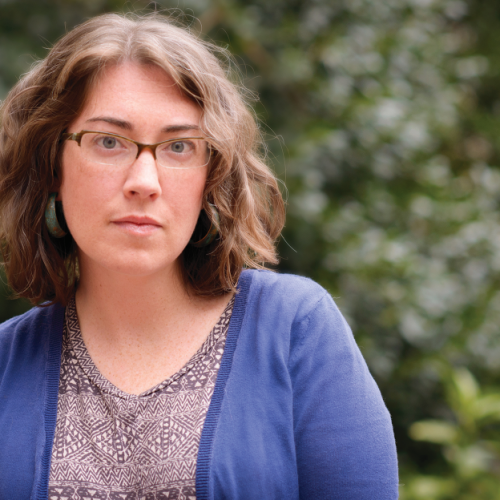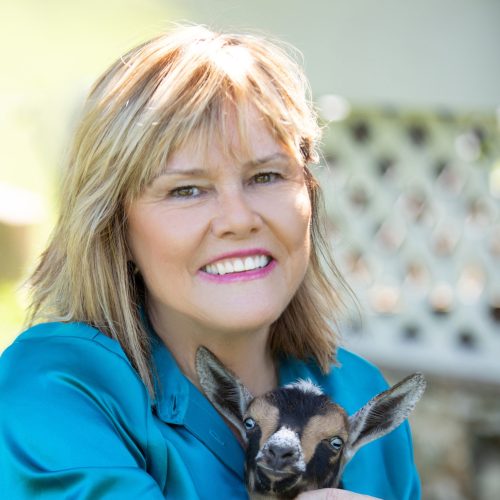The 28th annual Animal Law Conference: Impacts on Animals in a Changing Climate welcomed over 600 virtual registrants for three days of legal education, insight, and discussion around the theme Animals in a Changing Climate. Held entirely online for the first time, the conference addressed the growing intersection between animal law, environmental justice, and public health—reflecting the urgent need for systemic reform in the face of climate disruption and global crises.
Dates & Location
October 23–25, 2020
Virtual
Registration
Total registrants: 611
Legal Professionals: 234
Law Students: 175
Nonprofit/Public Interest: 116
Animal Activists: 86
Our Sponsors





Highlights & Reflections
The conference opened with a panel examining the impacts of climate change on animals, grounding the weekend’s programming in the scientific, ethical, and policy frameworks that shape animal protection in an era of environmental crisis. Later that day, speakers explored the connections between industrial animal agriculture, environmental justice, and COVID-19, followed by a session on climate anxiety and compassion fatigue—acknowledging the emotional toll of advocacy in a time of compounding global threats.
Saturday’s sessions continued to explore the intersection of climate and animal protection, with panels on litigation strategies, zoonotic disease risks, and the broader consequences of human-animal relationships. The day concluded with a special conversation featuring Jonathan Safran Foer, author of Eating Animals and We Are the Weather, reflecting on personal responsibility and collective action in addressing the climate emergency.
Sunday offered concurrent sessions on professional ethics, food policy innovation, climate-related legislation, and the legal implications of changing environmental conditions. Afternoon panels highlighted emergency contingency planning for animals and judicial decision-making in animal cruelty cases, emphasizing the need for stronger systems to protect animals in times of crisis.
The 28th annual Animal Law Conference: Impacts on Animals in a Changing Climate provided a timely and wide-ranging look at how climate change is reshaping the legal and ethical dimensions of animal protection. The fully virtual format allowed for broad participation and global perspective, reinforcing the importance of collaborative, cross-disciplinary solutions in advancing the field of animal law.
Friday
Welcome & Closing Remarks
Animals in a Changing Climate: Science, Ethics, and Policy
Animals are uniquely vulnerable to the impacts of the climate crisis, which threatens not only their well-being but, in many cases, their very existence. This opening panel will lay out the scientific, ethical, and policy frameworks that underpin tackling climate change’s impacts on animals.
Industrial Animal Agriculture, Environmental Justice, COVID-19, and Climate Change
Industrial animal agriculture, sometimes called factory farming, is a significant contributor to climate change. This panel will provide an overview of the connection between industrial animal agriculture and climate change, as well as how it negatively impacts farmed animals, the environment, workers, neighboring communities, public health, and food safety. The panel will also address how our food policies facilitate the existence of industrial animal agriculture and disregard environmental justice issues, COVID-19, and other pandemic risks.
Climate Anxiety and Compassion Fatigue
Australia burned for weeks. Venice flooded. Animals, both human and nonhuman, are suffering around the world. In the era of the twenty-four-hour news cycle, the impact of climate change is impossible to escape and can take a significant toll on our already stressful lives. Join us for a discussion on how to cope with climate change anxiety and compassion fatigue while still contributing to the solution.
Saturday
Litigating for Animals in a Climate Crisis
Litigation has long been an important tool for animal advocates. This panel will explore how animal protection litigation strategies are impacted and informed by the climate crisis, and will examine the promises, challenges, and limitations of litigation as a tool to tackle climate change’s impacts on animals.
Our Relationship with Animals and the Rise of Zoonotic Diseases
As habitats are being destroyed, oceans are warming, and factory farms proliferate across the globe, zoonotic diseases (those that spread between animals and humans) are also on the rise. Join our panel of experts to learn how the interdependence among animals, the climate, and human health causes adverse impacts to wild, aquatic, and farmed animals, and ultimately humans, as new infectious diseases, like COVID-19, emerge.
A Conversation with Jonathan Safran Foer
Join Center for Animal Law Studies Executive Director, Pamela Hart, as she speaks with Jonathan Safran Foer about his most recent book, We Are the Weather: Saving the Planet Begins at Breakfast, what changes he’s seen for better or for worse since the publication of Eating Animals, whether he’s optimistic about the future, and more. Time will also be reserved for audience Q&A.
Introduction by: Pamela Hart, Executive Director, Center for Animal Law Studies at Lewis & Clark Law School
Sunday
Professional Responsibility in a Changing Environment
Calling all attorneys! Russ Mead, animal law ethics expert, will lead attendees through an interactive and engaging set of hypotheticals aimed at examining challenging dilemmas that animal protection attorneys often face, and the appropriate response for adhering to the Model Code of Professional Responsibility. One hour of ethics credit will be available, pending bar approval.
Food Policy and Purchasing Innovations in a Climate Crisis
Our food system is one of the key drivers of global climate change, animal suffering, and human exploitation. This panel will discuss current food policy and purchasing innovations designed to accelerate transition to a cleaner, more humane, and equitable food system.
Legislative and Regulatory Updates
Now more than ever, animal issues are represented in proposed legislation across the country. This panel will highlight legislative and regulatory updates that affect animals directly and indirectly, while also examining the unique challenges brought on with animal advocacy in a changing climate.
Tackling Other Causes of Our Changing Climate
Increasingly, scientists and governments are acknowledging that factory farming and other animal-use industries are a significant driver of climate change. While addressing these issues is critical, this panel of experts will shed light on other leading climate change causes and how advocates can take meaningful steps to effect positive change for animals.
Contingency Planning for Animals
Climate change is accelerating the rate of extreme weather events, pandemics, and other crises. As the mass culling of millions of animals amidst the COVID-19 pandemic has vividly illustrated, it is more important than ever that facilities holding animals be prepared to care for them when such contingencies arise. This panel will discuss current efforts to ensure adequate planning for animals in emergencies by industry, policymakers, and animal protection groups.
Judicial Decision-making: Reaching Key Stakeholders in Animal Cruelty Cases
Judges encounter animal-related issues in a number of different contexts, including criminal court, mental health court, and juvenile and family court. These cases can pose unique challenges for judges, particularly with regard to animals’ multifaceted legal status. This panel will highlight the key issues that frequently arise in animal cruelty cases from a judge’s perspective and the value of building coalitions among various stakeholders.
The conference presenters submitted the following materials for attendees to reference. The materials, although not necessarily written by the individual speakers, are relevant to their presentation topics and were applicable to attorneys seeking continuing legal education (CLE) credits for attending the virtual conference.

Animals in a Changing Climate: Science, Ethics, and Policy
- Student Discussion Questions – Animals in a Changing Climate: Science, Ethics, and Policy
- Benjamin PPT – ALC 2020
- The Paris Agreement
- IPCC Special Report on Climate Change and Land (Summary for Policymakers)
- The Conversation, ‘COVID19 or the pandemic of mistreated biodiversity’ April 2020
- GNHRE blog, ‘The Rights of Nature (Rivers) and Constitutional Actions in Columbia’ by Hector Herrera-Santoyo
- National Geographic, ‘A Voice for Nature’ by Kennedy Warne
- Bennison PPT – ALC 2020
- Aeon, ‘All We Owe to Animals’ by Jeff Sebo
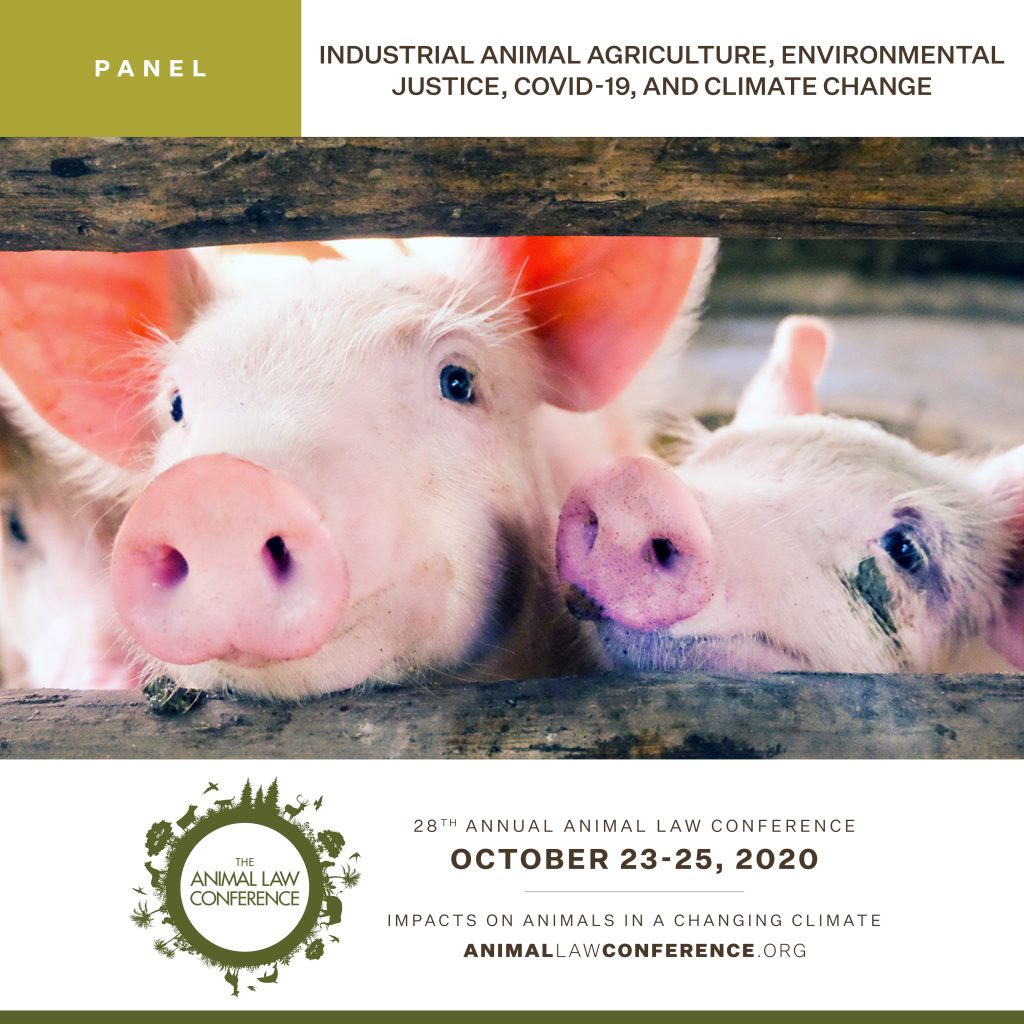
Industrial Animal Agriculture, Environmental Justice, COVID-19, and Climate Change
- Culpepper PPT – ALC 2020
- The Farm Bureau: Big Oil’s Unnoticed Ally Fighting Climate Science and Policy
- As Workers Sicken with COVID-19, US Meat Giants Clock Up Record Dividends
- Let’s Talk About Biogas…Even If We Think It Stinks
- Union of Concerned Scientists, ‘CAFOs Uncovered: The Untold Costs of Confined Animal Feeding Operations’ (2008)
- New York Daily News, ‘Slaughtering animals is not essential: Don’t use the coronavirus as an excuse to loosen meat-processing rules’ by Delcianna J. Winders
- Student Discussion Questions – Industrial Animal Agriculture, Environmental Justice, COVID-19, and Climate ChangeBiogas From Factory Farm Waste Has No Place in a Clean Energy Future

Climate Anxiety and Compassion Fatigue
- Student Discussion Questions – Climate Anxiety and Compassion Fatigue
- Marris PPT – ALC 2020
- The New York Times, ‘How to Stop Freaking Out and Tackle Climate Change’ by Emma Marris
- New Psychotherapist, ‘Shame and guilt over one’s individual contribution to climate change isn’t helpful’ by Emma Marris, pp. 32-34
- National Geographic, ‘Why We’ll Succeed in Saving the Planet from Climate Change,’ by Emma Marris
- Vicarious Trauma and Attorney Self Cafe as an Ethical Issue
- Burnout and Compassion Fatigue: What Lawyers Need to Know
- Vicarious Trauma Prier for the Juvenile Court Practitioner
- Compassion Fatigue Post-Handout

Litigating for Animals in a Climate Crisis
- Student Discussion Questions – Litigating for Animals in a Climate Crisis
- Glitzenstein PPT – ALC 2020
- In re Polar Bear ESA Listing & Section 4(d) Rule Litig., 709 F.3d 1 (D.C. Cir. 2013)
- Center for Biological Diversity v. Bernhardt, 2019 U.S. Dist. LEXIS 165439 (D. Alaska Sept. 26, 2019) (Walrus)
- Center for Biological Diversity v. U.S. Fish and Wildlife Service, 2020 U.S. Dist. LEXIS 169065 (S.D. Fla. Sept. 16, 2020) (Florida Keys Mole Skink)
- 2008-10-14 Interior Solicitor Memo
- 2008-05-14 Hall GHG Guidance
- 2008 USGS Memo on Linking Emissions with Impacts
- Heinzen PPT – 2020 ALC
- Factory Farm Biogas is a False Solution – Newsletter
- Citizens’ CAFO CWA Petition
- F&WW v USDA Complaint
- Biogas From Factory Farm Waste Has No Place in a Clean Energy Future
- Climate Action Tracker: Global Emissions Time Series
- The Carbon Majors Database: CDP Carbon Majors Report 2017
- Globe Gazette, ‘Manure Tanks Overflow in Western Iowa Floods’ by Erin Jordan
- Stella PPT – ALC 2020
- Alaska Community Action on Toxics v CEQ – NEPA Rollback Compl.
- Animal Legal Def. Fund v Bernhardt – ESA Rollback Compl.
- California v Bernhardt – ESA Rollback Compl.
- California v CEQ – NEPA Rollback Compl.
- Ctr for Biological Diversity v Bernhardt – ESA Rollback Compl.
- Envtl. Justice Health Alliance v CEQ – NEPA Rollback Compl.
- Iowa CCI v CEQ – NEPA Rollback Compl.
- Wild Virginia v CEQ – NEPA Rollback Compl.

Our Relationship with Animals and the Rise of Zoonotic Diseases
- Spillover: Animal Infections and the Next Human Pandemic
- Anthropocene Magazine, ‘To Prevent Future Pandemics, Invest in Forests’ by Cara Giaimo
- The Hill, ‘Torturing fewer animals will mean burying fewer people’ by David Cassuto and Stephen Wells
- Student Discussion Questions – Our Relationship with Animals and the Rise of Zoonotic Diseases
- Akhtar PPT – ALC 2020
- HuffPost, ‘Why Our Health Depends on Treating Animals Better” by Aysha Akhtar
- HuffPost, ‘Why Are We Seeing an Explosion of New Viruses Like Zika?” by Aysha Akhtar
- Springer Link, ‘The need to include animal protection in public health policies’ by Aysha Akhtar
- Herschler PPT – ALC 2020
- Aquaculture Resources
- Additional Resources: Petitions, Lawsuits, and Legislation
- Additional Resources by Topic Area
- Lyman PPT – ALC 2020
- Pavlin et al 2009 Emerging Infectious Disease Risks of Importing Zoonotic Diseases through Wildlife Trade United States_Lyman
- Convention on International Trade in Endangered Species of Wild Fauna and Flora (CITES)
- Coronavirus Testing Indicates Transmission Risk Increases Along Wildlife Supply Chains for Human Consumption in Vietnam
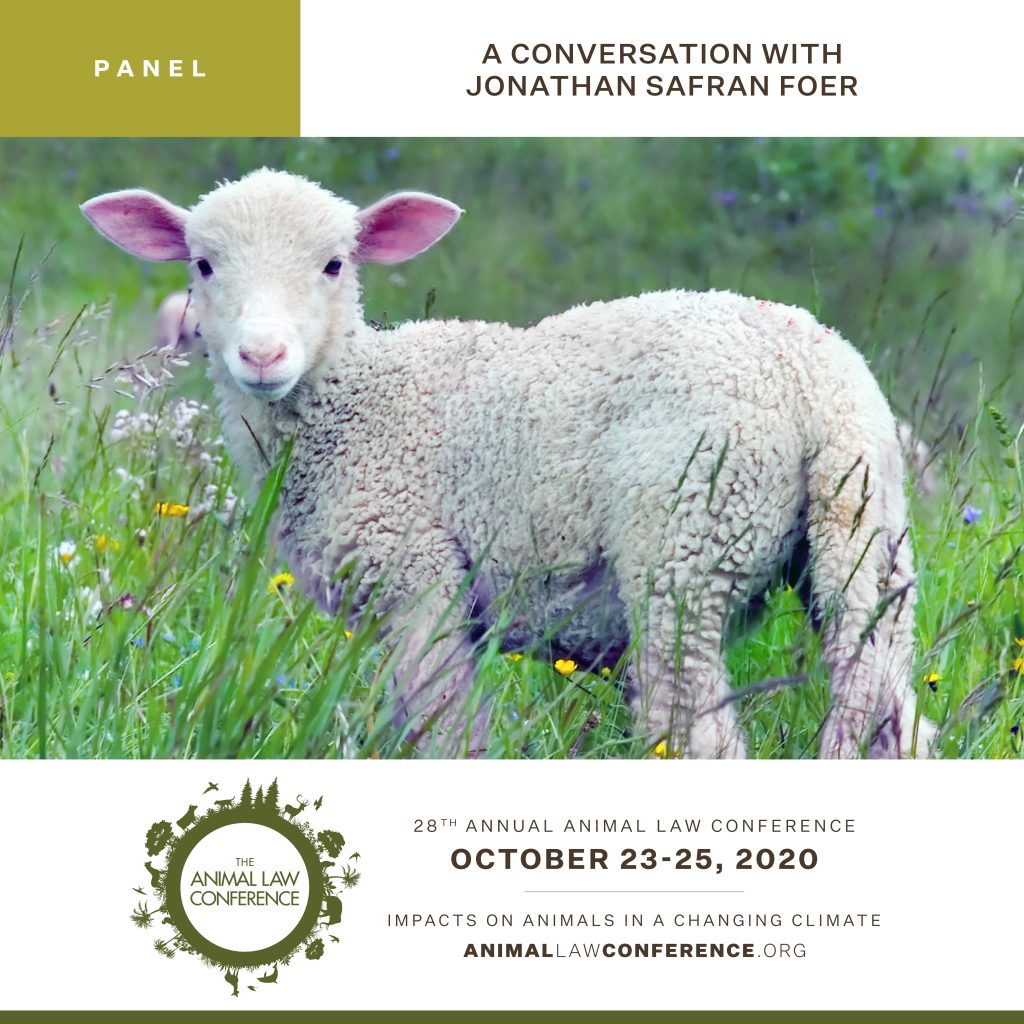
A Conversation with Jonathan Safran Foer
- The Guardian, ‘Interview Jonathan Safran Foer: ‘Why don’t Extinction Rebellion issue specific ideas? They are awfully vague’’ by Tim Adams
- Natural Awakenings, ‘Jonathan Safran Foer on Conscious Eating to Save the Planet’ by Julie Peterson
- Washington Post, ‘Meat is not essential. Why are we killing for it?’ by Jonathan Safran Foer (requires Washington Post subscription to access)
- The New York Times, ‘The End of Meat is Here’ by Jonathan Safran Foer (requires NYT subscription to access)
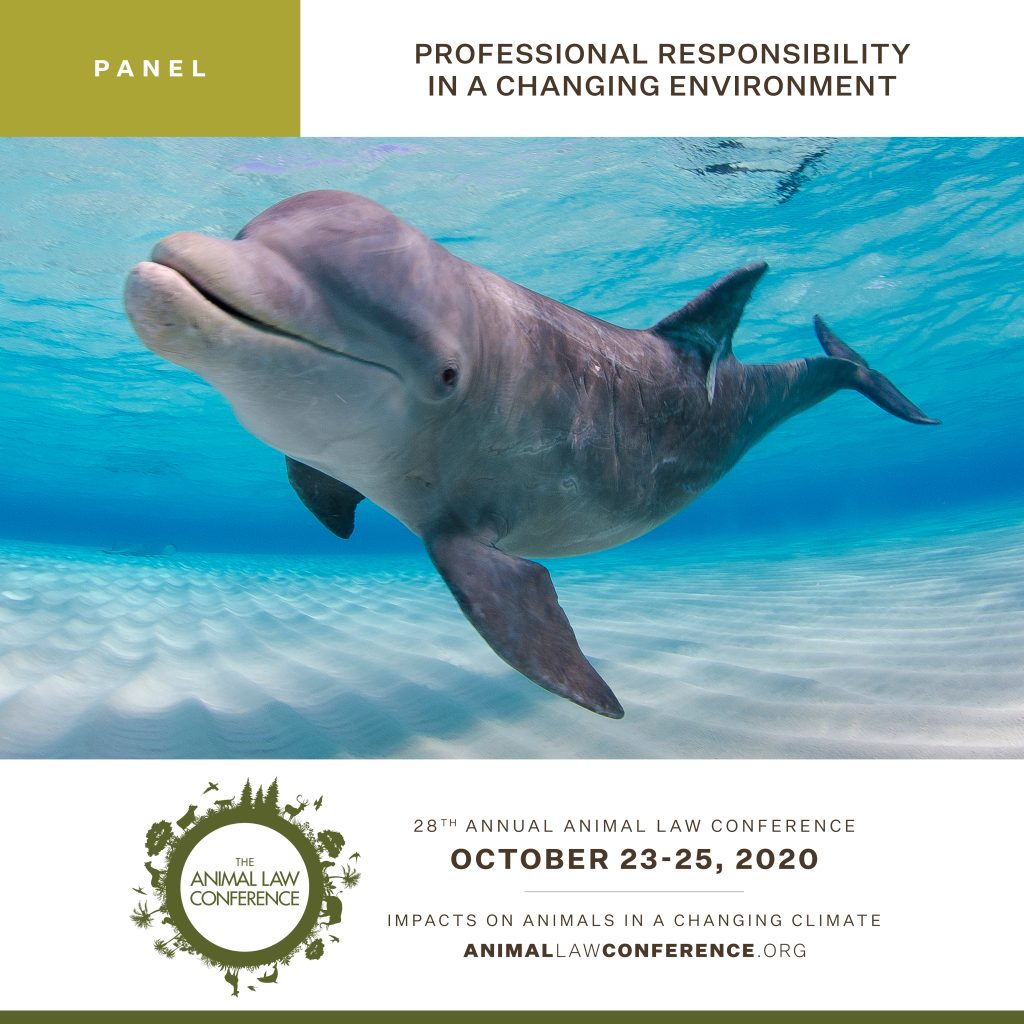
Professional Responsibility in a Changing Environment
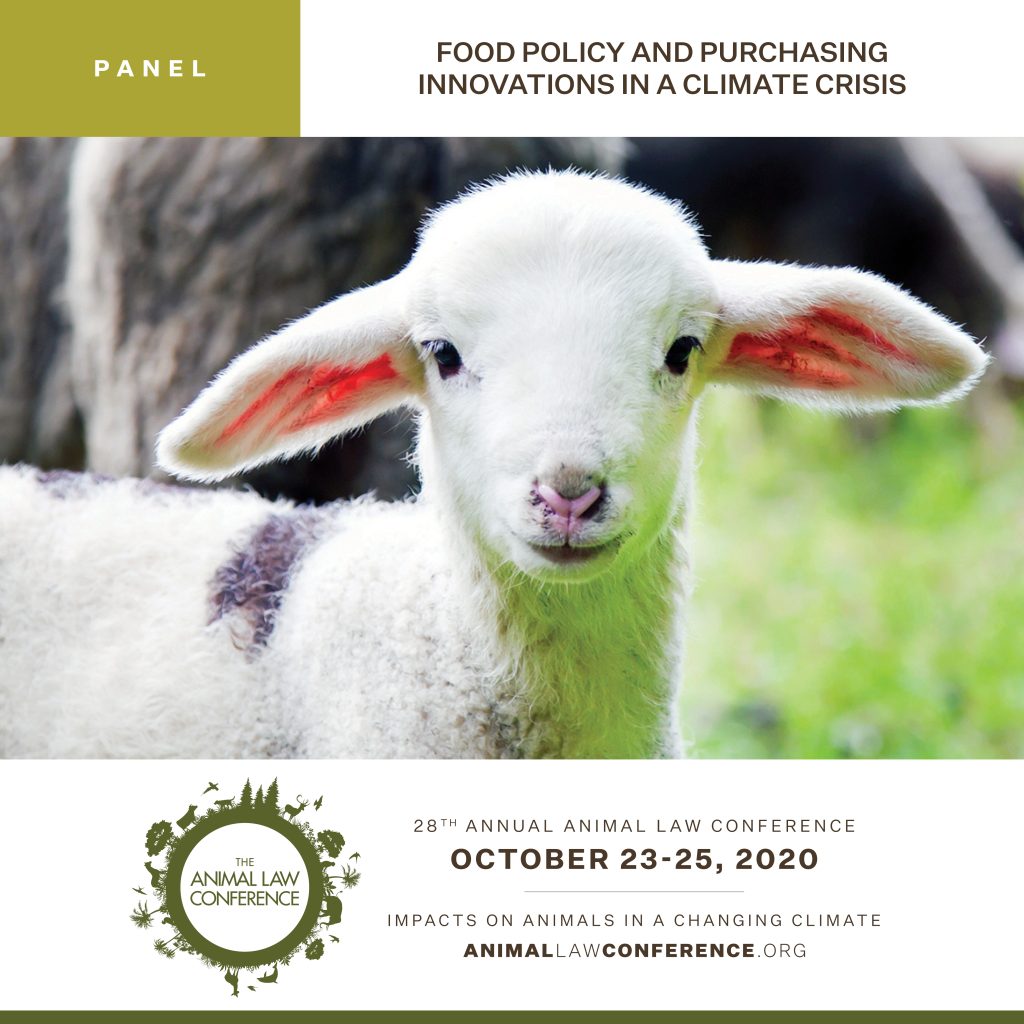
Food Policy and Purchasing Innovations in a Climate Crisis
- Student Discussion Questions – Food Policy and Purchasing Innovations in a Climate Crisis
- Climate Change Beyond Environmentalism Part I: Intersectional Threats and the Case for Collective Action
- Climate Change and Wildlife Health: Direct and Indirect Effects
- Clean Food: The Next Clean Energy Revolution
- Systematic review of greenhouse gas emissions for different fresh food categories
- Losses, inefficiencies and waste in the global food system
- The specter of productivism and food democracy
- Why Petroleum Did Not Save the Whales
- Yale CAFE Law & Lab Recent Projects
- Oliva PPT – ALC 2020
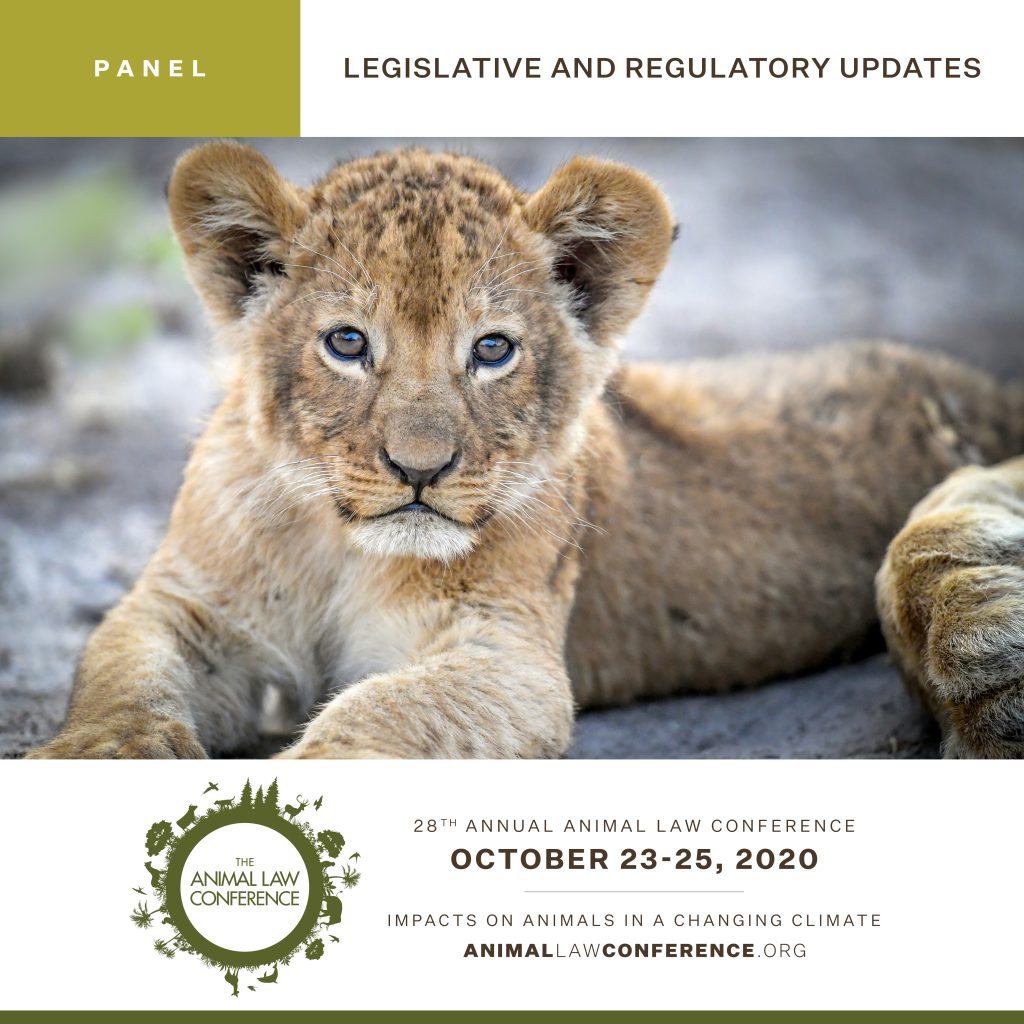
Legislative and Regulatory Updates
- Student Discussion Questions – Legislative and Regulatory Updates
- Op-ed by 18-year-old activist Jamie Margolis: “Politicians blew off Gen Z’s climate goals. The coronavirus shows we can act fast.”
- PREPARED Act – HSLF factsheet – 116th Congress
- HSLF blog on animal protection measures in FY21 House Agriculture Appropriations Subcommittee bill
- CAFOs – EPA reporting rule – FY10 Interior Appropriations letter 9-30-09
- 116th Congress – HSLF Legislative Priorities 10-15-20
- Past and future HSLF blogs on key animal protection issues
- Dylewsky PPT – ALC 2020
- Schatzmann PPT – ALC 2020
- Animal Legal Defense Fund: Legislation
- Animal Legal Defense Fund: Student Chapter Legislative Projects
- ALDF White-Paper-COVID-19-and-Animals
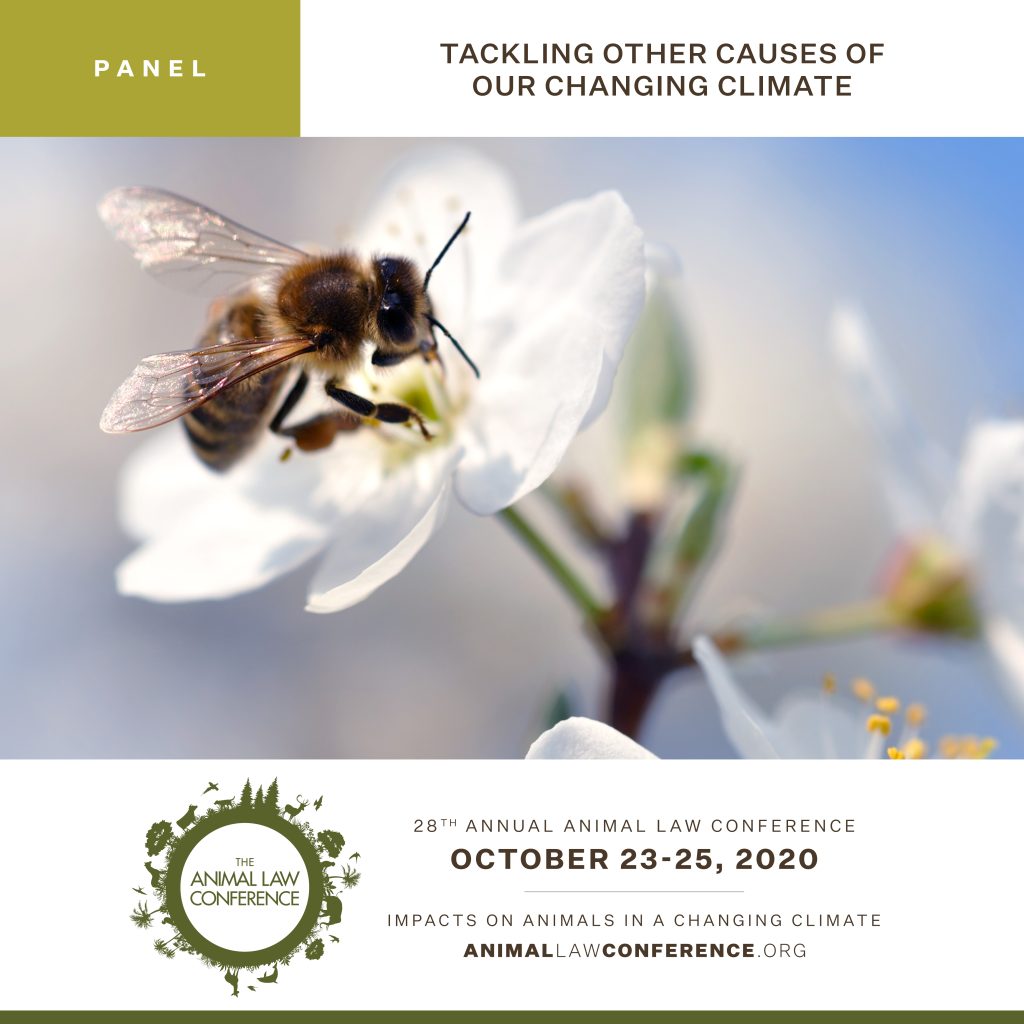
Tackling Other Causes of Our Changing Climate
- Student Discussion Questions – Tackling Other Causes of Our Changing Climate
- Fieldstein PPT – ALC 2020
- Medium: Articles by Stephanie Feldstein
- Mebane PPT – ALC 2020
- Powers PPT – ALC 2020
- Carbon Trading Co-pollutants and Environmental Equity Evidence from California’s Cap-and-Trade Program
- Near Zero 2016 MRR Research Note
- Near Zero Post-2020 Caps Report
- Schatzki and Stavins Cal Analysis
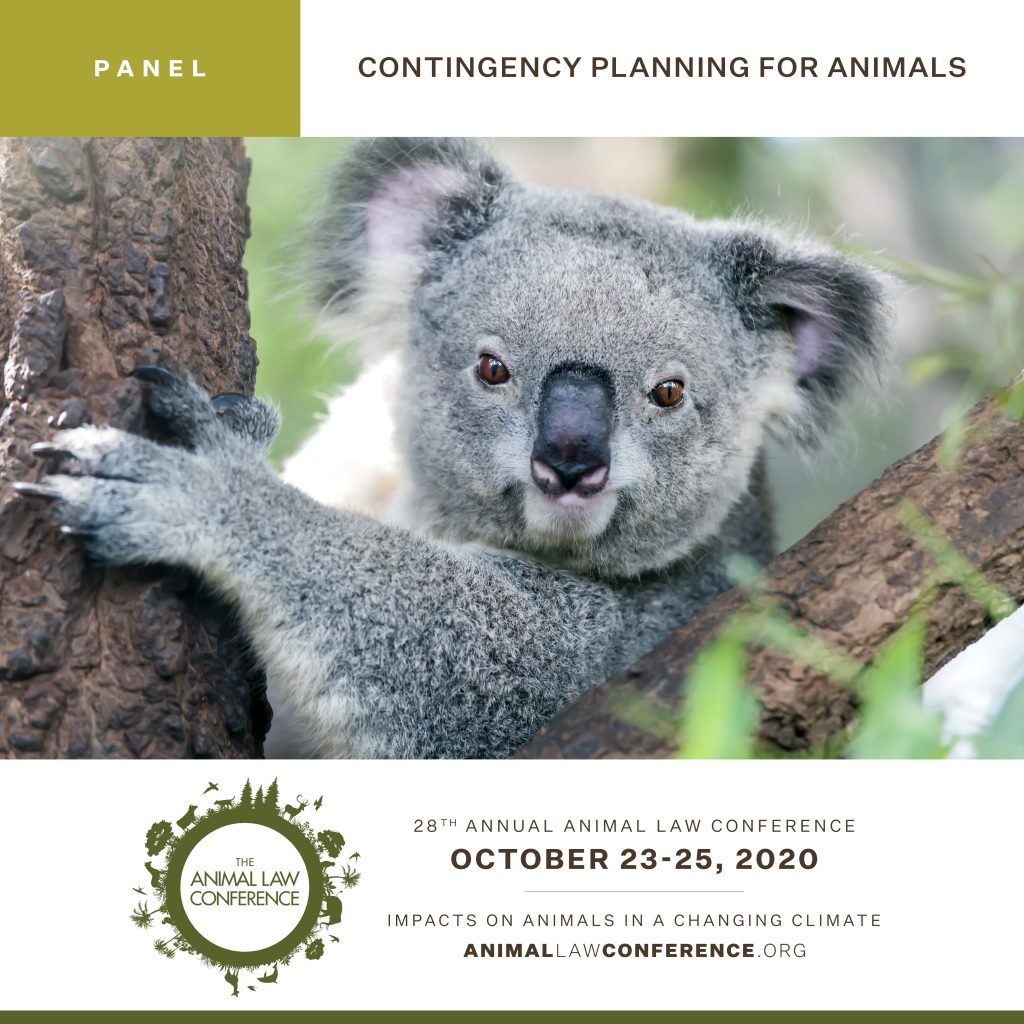
Contingency Planning for Animals
- Undark, ‘Opinion: As Facilities Close for Covid-19, Stranded Animals Could Suffer’ by Delcianna J. Winders
- ABA, ‘Natural Disasters: Considerations for Animals in Agriculture’ by Alex Cerussi and Irina Anta
- NRC: Guide for the Care and Use of Laboratory Animals
- Student Discussion Questions – Contingency Planning for Animals
- Herschler PPT – ALC 2020
- Animal Research Laboratory Overview (ARLO)
- Perry PPT – ALC 2020
- ASPCA Factsheet 116th – Farm System Reform Act
- ASPCA Factsheet 116th – PREPARED Act
- ASPCA Factsheet 116th – Safe Line Speeds in COVID-19 Act
- 2020-03-04 Titus-King letter to Ag Committee leaders – HR 1042 PREPARED Act
- USDA Disaster Assistance Livestock Indemnity Program-fact_sheet
- Plant Based News, ‘3.4 Million Dead in Hurricane Florence: Farm Animals Are Disposable’ by Maria Chiorando
- Sentient Media, ‘What Happens to Farm Animals When Natural Disaster Strikes?’ by Matt Zampa
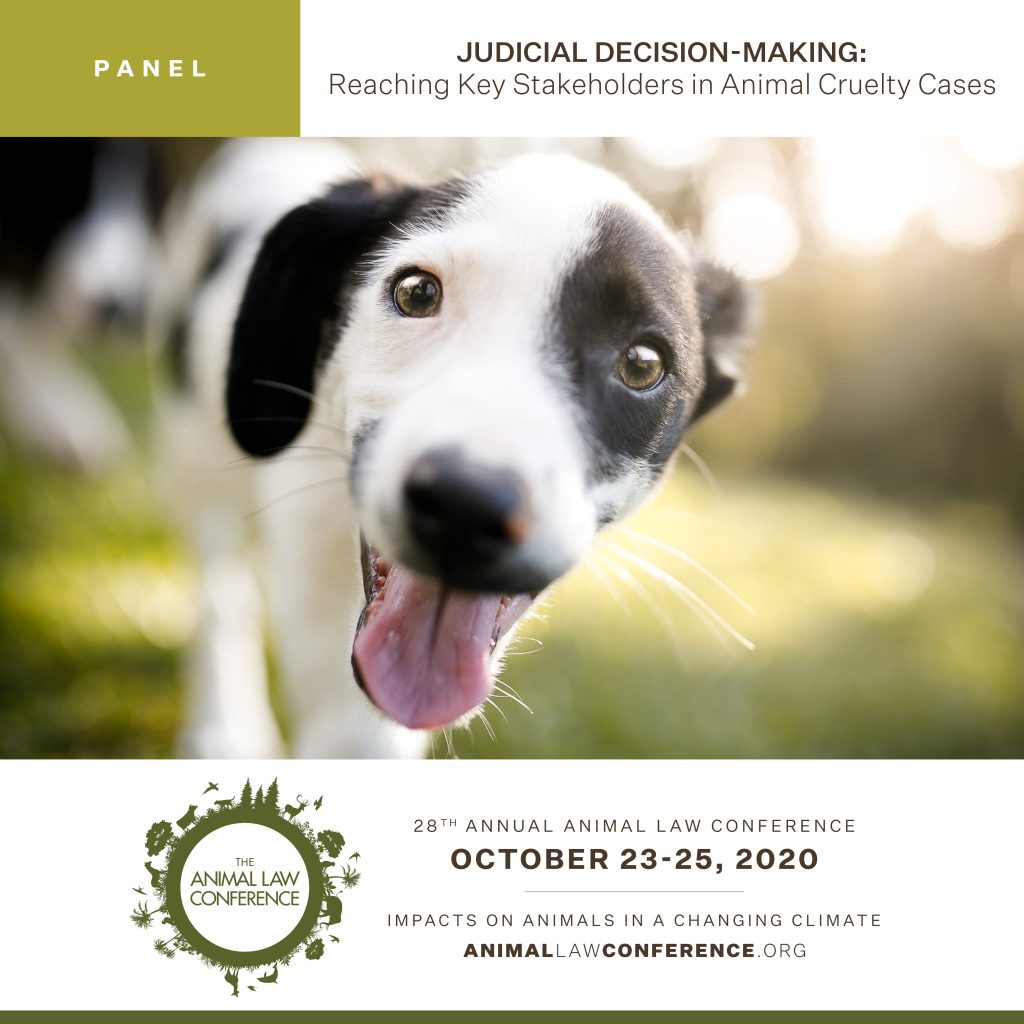
Judicial Decision-making: Reaching Key Stakeholders in Animal Cruelty Cases
- Student Discussion Questions – Judicial Decision-making: Reaching Key Stakeholders in Animal Cruelty Cases
- Contreras PPT – ALC 2020
- The Journal of Appellate Practice and Process, ‘Advocacy from the Human Perspective: Advice for Young Advocacy from the Human Perspective: Advice for Young Appellate Lawyers’ by Douglas S. Lavine
- NCJFCJ: Resolution Regarding Animal Cruelty and its Link to Other Forms of Violence
- NCJFCJ and ALDF Technical Assistance Bulletin, ‘What Juvenile and Family Court Judges Need to Know’
- Rasin PPT – ALC 2020
- The Man Who Married His Pigeon, Animal Hoarding: One Judge’s Perspective by Gale E. Rasin
- Romero PPT – ALC 2020
- Ohio Animal Advocates: The Importance of Cross-Reporting Animal and Human Violence
- Veterinarian’s Money Digest, ‘Links Between Animal Abuse and Domestic Violence’ by JoAnna Pendergrass, DVM
- American Humane: Understanding the Link Between Animal Abuse and Family Violence
- Elder Abuse and Animal Abuse: Implications and Strategies for Adult Protective Services
- OJJDP: Animal Abuse and Youth Violence
- Juvenile Animal Abuse: Practice and Policy Implications for PNPs by Mary Muscari, PhD, CRNP, APRN, CS
The virtual conference was approved for 13.75 continuing legal education (CLE) credits by the Oregon State Bar, including 1 hour of ethics and 1 hour of mental health/substance abuse credit. Credits were included with registration and attorneys were required to watch all sessions, either live or on-demand, to receive full credit.
Most states accept credits from other mandatory CLE states such as Oregon, but please check with your local bar association to confirm.
Information via the American Bar Association (ABA) regarding CLEs.
Watch all sessions here
Playlist
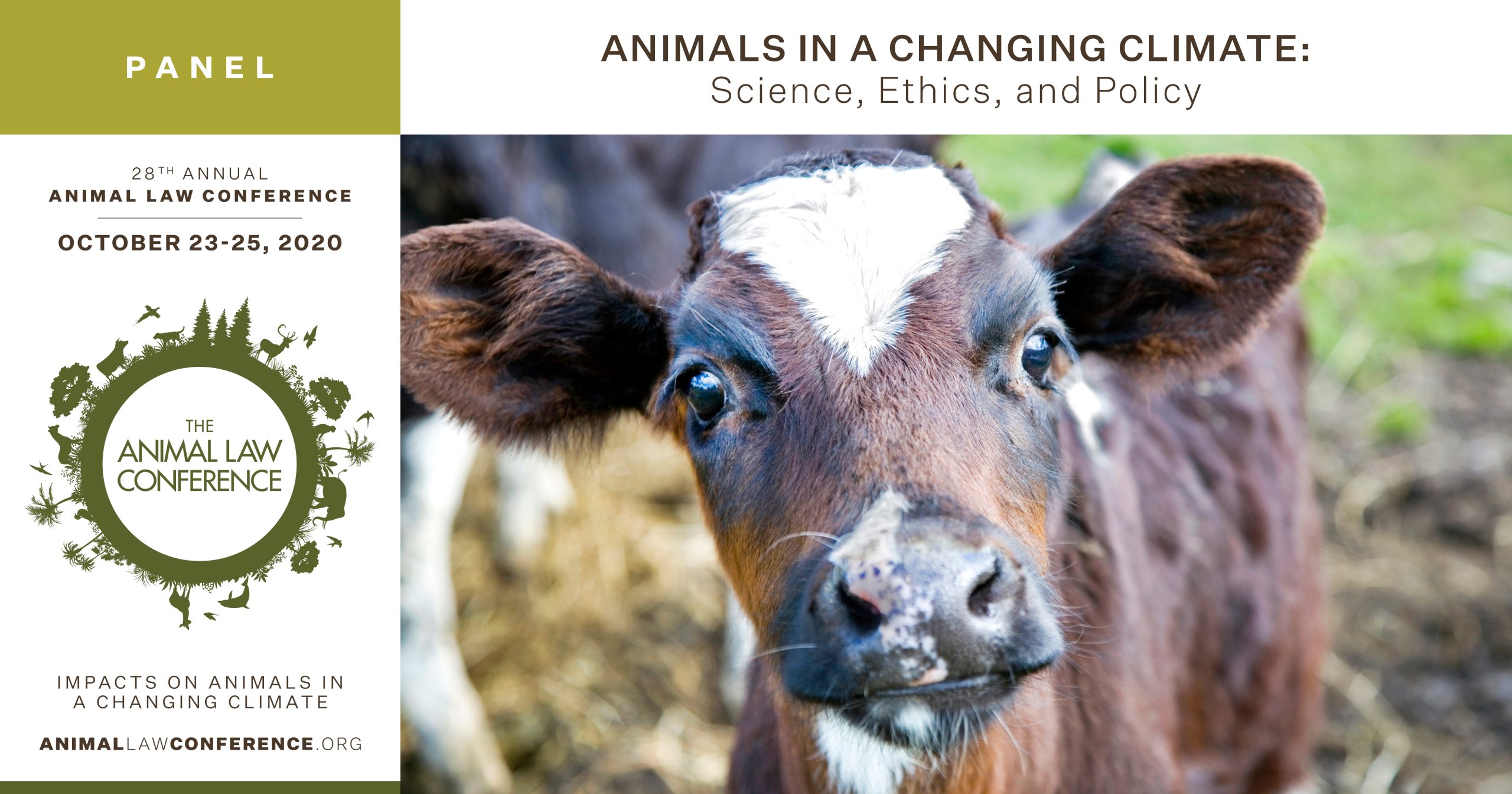
1:15:05

1:09:26
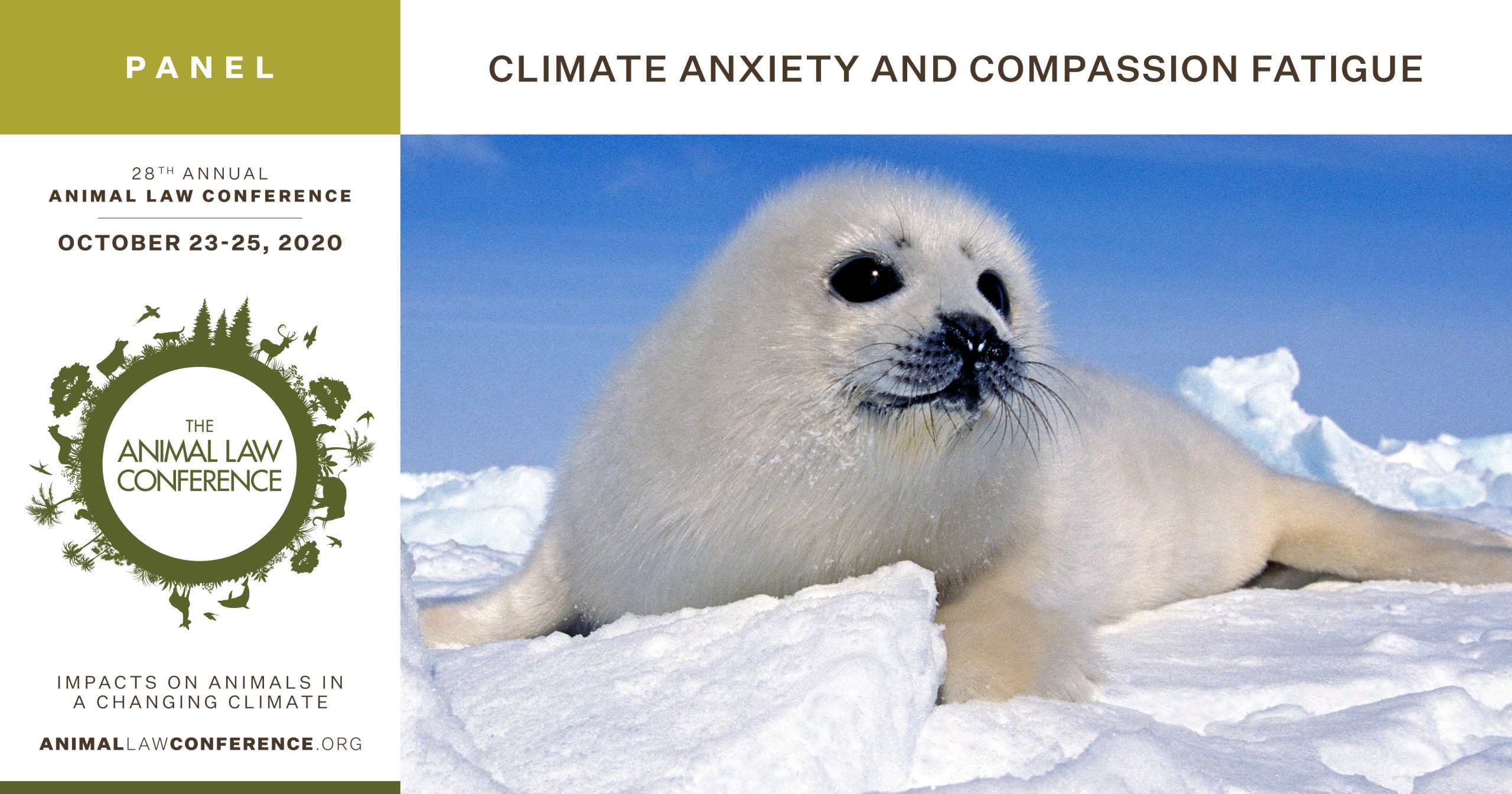
56:08

1:12:09

1:15:08

1:03:03

54:52

1:01:58

1:14:51

1:13:10

